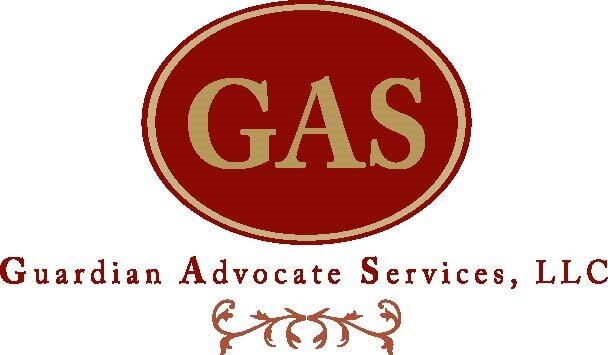About Us
Guardian Advocate Services, LLC, is the latest addition and division of a successful and well-known financial and healthcare firm, Karren, Hendrix, Stagg, Allen & Company (KHSA), that has served the community for more than four decades. Specifically, Karren, Hendrix & Associates was formed in 1977. In 2003, Ray H. Allen & Associates merged with KH&A; the larger company acquired Stagg & Associates in 2004—which had a division known as Stagg Eldercare Services, and then, finally, as Stagg Fiduciary Services, LLC (SFS). SFS has provided services ranging from payment of bills to full conservatorships for several years—services which have helped minimize their clients’ worries about daily financial responsibilities. Now, with the addition of Guardian Advocate Services, LLC, clients (and family members) also enjoy the benefit of reducing their stress and concerns about daily healthcare, personal and/or safety needs.The philosophy of Guardian Advocate Services is that high-quality, detail-oriented care and services result in higher satisfaction and value to our clients—each of whom is a unique individual with very unique and specific needs. We believe that it is not just the big things in life that matter; to the contrary, it is often the little things, the smallest details, that are most important. Based on this philosophy, our high-quality services are uniquely tailored and detailed to each individual client. And while the big needs will be addressed (and met), we will not overlook the little things--that may, indeed, matter just as much—to you, our client.
What is a Guardian?
A guardian, sometimes called a guardian of person, is an individual or professional/corporate party that has been appointed by the Court to make personal and healthcare decisions on behalf of a person who has been determined to be incapacitated (by the Court) to make such decisions. Ideally, the guardian may be a trusted family member or significant other. If no family or friends are able/willing to serve in this capacity, the Court may appoint a professional or corporate party (public or private) to assume this responsibility.
Guardianships may be limited to certain tasks or powers (limited guardianships), particularly if the vulnerable person (often called a ward or protected person) still retains some capacity. A full (plenary) guardianship enables the guardian to make all (non-financial) decisions for the protected person, much as a parent has the responsibility to do for a minor child.
In spite of the guardian having significant agency/control, a trusted guardian will act as an advocate for the ward, and consider the current and/or past preferences/desires of the ward (principle of substituted judgement) when making decisions on the ward’s behalf. If it is not possible to learn about the ward’s preferences and/or if the ward is unable to communicate, the guardian will make decisions intended to be best for the ward (principle of best interest). The guardian has the charge to seek the least restrictive alternative possible in order to maximize the independence of the ward, while still ensuring safety.
As determined by the 1999 Legislature, Utah’s Office of Public Guardian (OPG) was established in response to long-standing concerns in the community about incapacitated adults without family or friends to serve in a guardianship capacity. For more information, visit OPG online at www.opg.utah.gov or call (801) 538-8255.
Guardians, whether individuals or professionals—or whether public or private entities, must follow standards set forth by their State Courts. Additionally, guardians should consider/follow guidelines published by the National Guardianship Association (NGA); for more information about the NGA, visit them online at www.guardianship.org or call (877) 326-5992.
